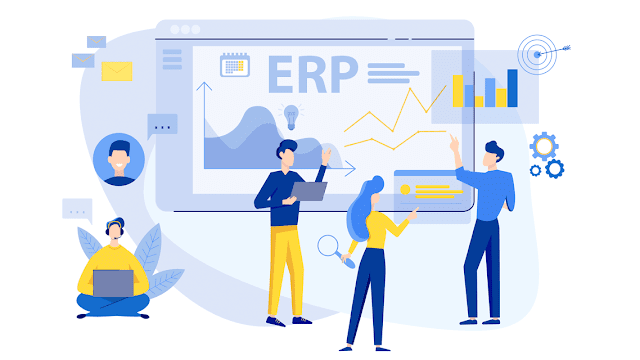How to Build a Business Case for a New ERP Solution
"Beyond the most basic, the choice to implement a new ERP solution requires expertise."
Today's post-modern ERP Software solutions are more prosperous and more adaptable – and provide ROI in various direct and indirect ways.
For many firms, the problem is going through the mass of information available, combining current operational data, estimating future performance indicators, calculating ROI, and then building the business case using that understanding. Isn't it challenging to work on?
But working is vital. No ERP program should proceed without a thorough analysis to verify that its scope is well-defined, its budget is precise and complete, and its goals connect with its objectives. And no clearance should be granted unless the ROI and payback period has been determined and understood.
Nonetheless, many firms forego developing a comprehensive business case because they see it as merely an investment in technology.
Steps to Building a Business Case
1. Identify Current Problems and Reasons for Change
Evaluate all of your crucial business processes mapping to determine which are faulty, inefficient, and unproductive. This research will identify the barriers you must eliminate to improve your business significantly.
2. Determine and Analyze Opportunity
Several ERP benefits stem from integrated processes and operations and the availability of crucial data to all departments scattered across different geographies and time scales. As a result, it's critical to determine which procedures are essential for your organization and what kind of roadblocks are preventing you from reaching your objectives.
3. Determine, Focus, and Define Goals
It is critical to determine the most significant perks for your organization's performance you aspire to accomplish. Following improvements that will impact your business most, a step-by-step plan to implement those improvements is one factor that seeks our attention.
4. Evaluate Potential Solutions and Vendors
After identifying your problem areas, identify your targets, and comprehend the possible benefits of Enterprise Resource Planning systems as you better know your requirements.
5. Estimate Costs
A solid business case necessitates an appropriate estimation of the cost of deploying the ERP software. Of course, the most prominent portion of the price is the software itself, which depends on various factors such as the number of users, staff training hours, data integration, whether the solution is hosted on-premises or in the cloud etc. Organizational change, software configuration, project planning, maintenance costs, licenses, and other implementation services are additional expenditures.
6. Analyze Return on Investment
To estimate the ROI, go back over the targets you selected previously. Typically, you can derive the ROI with more efficient manufacturing and lower inventory, operational, and labor costs. To gain a good image of the benefits, consider the running costs of the existing system with the system that will succeed it.
7. Identify Threats and Provide a Mitigation Plan
Any significant change to your business systems introduces a threat. However, thorough ERP Project Management good change management, and professional resources decrease this threat.
8. Access the Business Value
At this point, a good assessment of the project's business value must include an expansive view of how it will continue, as well as an estimate of both the resources needed and the implementation schedule.
9. Present the Benefits and Value
Almost every function gets interfered with by a new ERP and redesigned business processes. Persuade the management that the long-term benefits would outweigh the short-term discomfort. Concentrate on the value-added by improving their functional areas and procedures.
To sum up,
The business case is more than just a foundation for your undertaking. It serves as the master plan for your company.
ERP consultants from Connected IT, Ireland, can assist you in your efforts to persuade management. Get in touch with us to learn more about the quantitative research focuses used in a business case.



Comments
Post a Comment